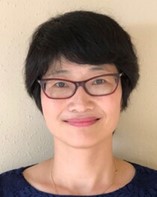Learning Control and Its Application in Rehabilitation Robotics
Ying Tan, Ph.D. Professor and Reader
Fellow of the IEEE, Fellow of IEAust and Fellow of APAIA
Department of Mechanical Engineering, University of Melbourne, Australia
Rehabilitation robotics leverages the principle of "practice makes perfect" by using repetitive task-based exercises to facilitate motor re-learning and functional recovery, particularly in poststroke rehabilitation. Rooted in neurocognitive rehabilitation theories, robot-assisted therapies provide tailored, intensive training routines that meet individual patient needs. Learning control (LC) strategies, originally developed in 1978 to achieve high tracking performance in industrial applications, offer a compelling framework for controller designs in this field. Unlike traditional control methods, LC algorithms improve performance over time by utilizing information from previous iterations. This talk highlights recent advances in LC designs and illustrates how various LC algorithms effectively address the unique challenges posed by rehabilitation robotics. Additionally, it explores future opportunities for integrating learning control into rehabilitation systems and outlines key research questions for advancing control theory in this critical area.
 Dr. Ying Tan is a Professor in Mechanical Engineering at The University of Melbourne,
Australia.
She
earned her bachelor's degree from Tianjin University, China, in 1995, and her PhD from the
National
University of Singapore in 2002. After a postdoctoral fellowship at McMaster University, she
joined
The University of Melbourne in 2004. Dr. Tan has received prestigious recognitions,
including an
Australian Postdoctoral Fellowship (2006-2008) and an ARC Future Fellowship (2009-2013).
Currently,
she serves on the ARC College of Experts (2024-2026) and holds several distinguished titles,
including Fellow of IEEE (FIEEE), Engineers Australia (FIEAust), and the Asia-Pacific
Artificial
Intelligence Association. She is also a member of the IEEE Fellow Committee (2024-2025). Her
research spans intelligent systems, nonlinear systems, data-driven optimization,
rehabilitation
robotics, human motor learning, wearable sensors, and model-guided machine learning.
Dr. Ying Tan is a Professor in Mechanical Engineering at The University of Melbourne,
Australia.
She
earned her bachelor's degree from Tianjin University, China, in 1995, and her PhD from the
National
University of Singapore in 2002. After a postdoctoral fellowship at McMaster University, she
joined
The University of Melbourne in 2004. Dr. Tan has received prestigious recognitions,
including an
Australian Postdoctoral Fellowship (2006-2008) and an ARC Future Fellowship (2009-2013).
Currently,
she serves on the ARC College of Experts (2024-2026) and holds several distinguished titles,
including Fellow of IEEE (FIEEE), Engineers Australia (FIEAust), and the Asia-Pacific
Artificial
Intelligence Association. She is also a member of the IEEE Fellow Committee (2024-2025). Her
research spans intelligent systems, nonlinear systems, data-driven optimization,
rehabilitation
robotics, human motor learning, wearable sensors, and model-guided machine learning.